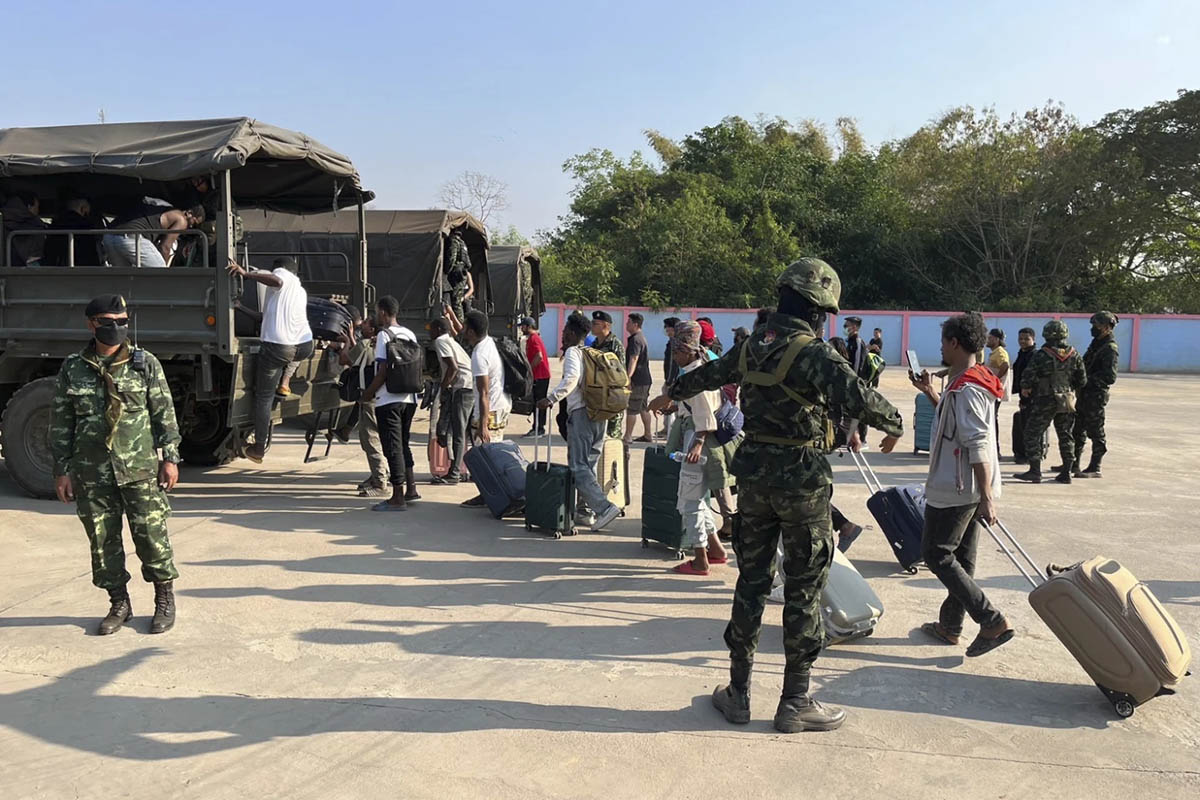
BANGKOK: Transnational organised crime groups in East and Southeast Asia are spreading their lucrative scam operations across the globe in response to increased crackdowns by authorities, according to a UN report issued on Monday.
For several years, scam compounds have proliferated in Southeast Asia, particularly in border areas of Cambodia, Laos, Myanmar, and the Philippines, shifting operations from site to site to stay ahead of the police.
More recently, scam centres that have defrauded victims of billions of dollars through false romantic ploys, bogus investment pitches, and illegal gambling schemes are now reported to be operating as far afield as Africa and Latin America.
Asian crime syndicates have been expanding their operations deeper into remote areas with lax law enforcement that are vulnerable to the influx, according to the report issued by the UN Office on Drugs and Crime, UNODC. The report is titled “Inflection Point: Global Implications of Scam Centers, Underground Banking and Illicit Online Marketplaces in Southeast Asia.”
“This reflects both a natural expansion as the industry grows and seeks new ways and places to do business, but also a hedging against future risks should disruption continue and intensify in Southeast Asia,” Benedikt Hofmann, UNODC’s acting regional representative for Southeast Asia and the Pacific, said in a statement.
UNODC estimates that hundreds of industrial-scale scam centres generate just under $40 billion in annual profits.
The trend to hedge beyond the region has been consistent with continued reports of crackdowns targeting Asian-led scam centres found operating in Africa, South Asia, the Middle East, and select Pacific islands, as well as related money laundering, human trafficking, and recruitment services uncovered in Europe, North America, and South America.
In Africa, Nigeria has become a hot spot, with police raids in late 2024 and early 2025 leading to numerous arrests, including people from East and Southeast Asia suspected of cryptocurrency and romance scams. Zambia and Angola have also dismantled Asian-linked cyber fraud operations.
In Latin America, the report notes that Brazil has faced growing challenges related to cyber-enabled fraud, online gambling, and associated money laundering, with links to criminal groups operating in Southeast Asia.
It also highlights that in late 2023 in Peru, more than 40 Malaysians were rescued after being trafficked by a Taiwan-based gang known as the Red Dragon syndicate, which forced them to commit cyber-enabled fraud.
The report also points to crackdowns on Asian-led scam centres in the Middle East and Pacific islands.
Alarmingly, even as Asian-led groups expand the geographical scope of their operations, the involvement of criminal organisations from other parts of the world is also growing, the report states.
New online markets, money laundering networks, stolen data products, malware, artificial intelligence, and deepfake technologies are laying the groundwork for the rise of crime as a service, the report states. These technological innovations are enabling businesses to operate online and adapt to crackdowns.
“The convergence between the acceleration and professionalisation of these operations on the one hand and their geographical expansion into new parts of the region and beyond on the other translates into a new intensity in the industry — one that governments need to be prepared to respond to,” Hofmann stated.
By RSS/AP






